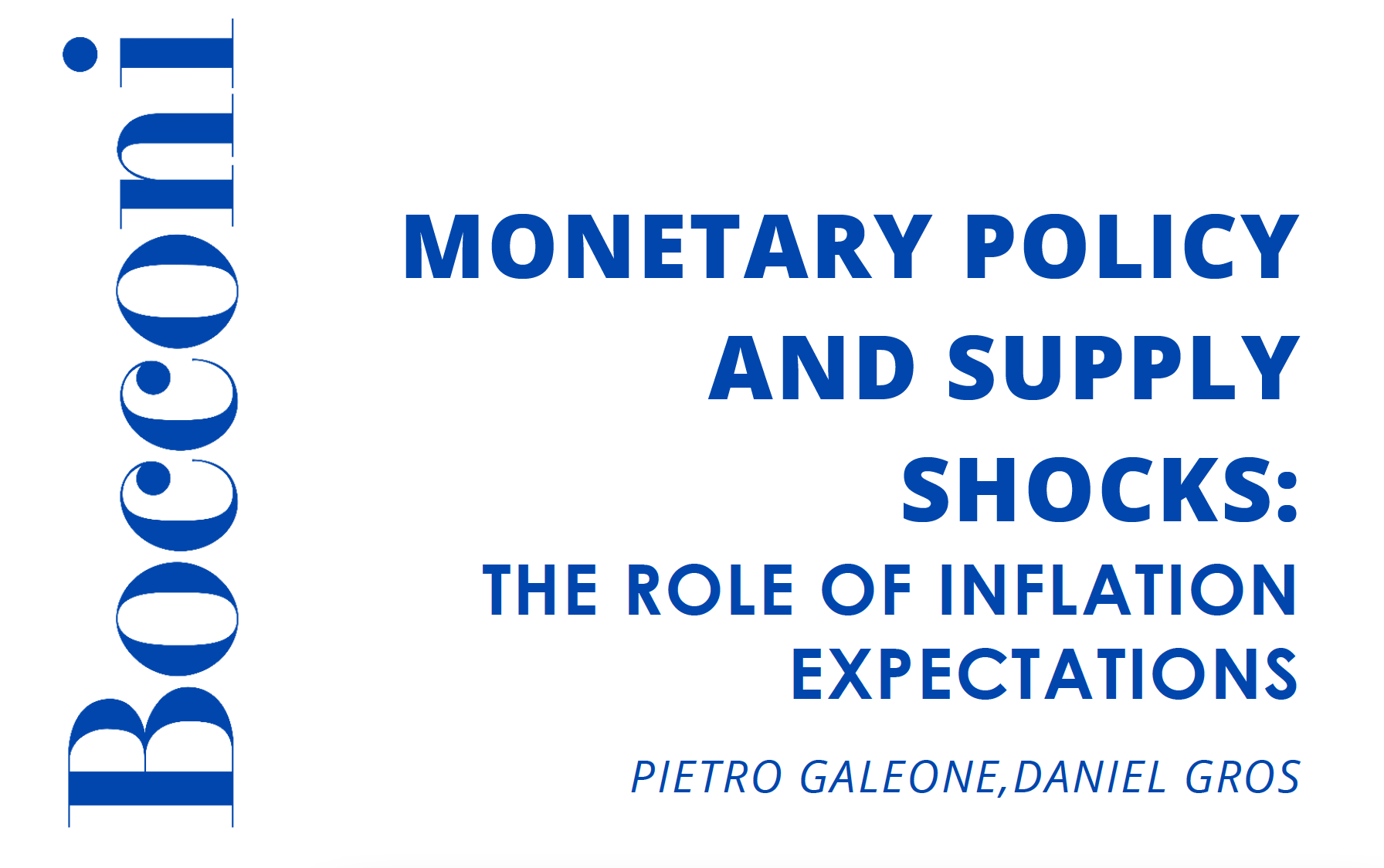Policy Brief: Monetary Policy and Supply Shocks: The Role of Inflation Expectations
Monetary policy should see through temporary shocks: In the face of unprecedented shocks old rules of thumb no longer work
Number: 29
Year: 2023
Author(s): Pietro Galeone and Daniel Gros
In the discussion on monetary policy in the presence of supply shocks, we focus on the Euro area to understand the recent wave of inflation.

- In the discussion on monetary policy in the presence of supply shocks, we focus on the Euro area to understand the recent wave of inflation. Given that the impact of shocks, and the appropriate monetary policy response, depend on two important parameters such as wage rigidity and the degree of financial constraint on households, it is useful to look at the evidence on these parameters.
- We show that real wages have been surprisingly flexible downwards and that excess liquid savings have been mostly spent by now. At the same time, the shocks that have contributed to inflation have now reversed with energy prices going back to the pre-war level.
- Additionally, we explore the role of inflation expectations, which track the past energy price shocks quite tightly and seem to be scarcely influenced by monetary policy. Thus, most of the inflation cost-push shocks have been temporary in nature, suggesting that inflationary pressures should soon abate.
- Finally, we provide a transatlantic perspective to check whether the shocks were similar and could thus account for the similarity in the evolution of inflation.
Download the Policy Brief
-
File
IEP@BU does not express opinions of its own. The opinions expressed in this publication are those of the authors. Any errors or omissions are the responsibility of the authors.

